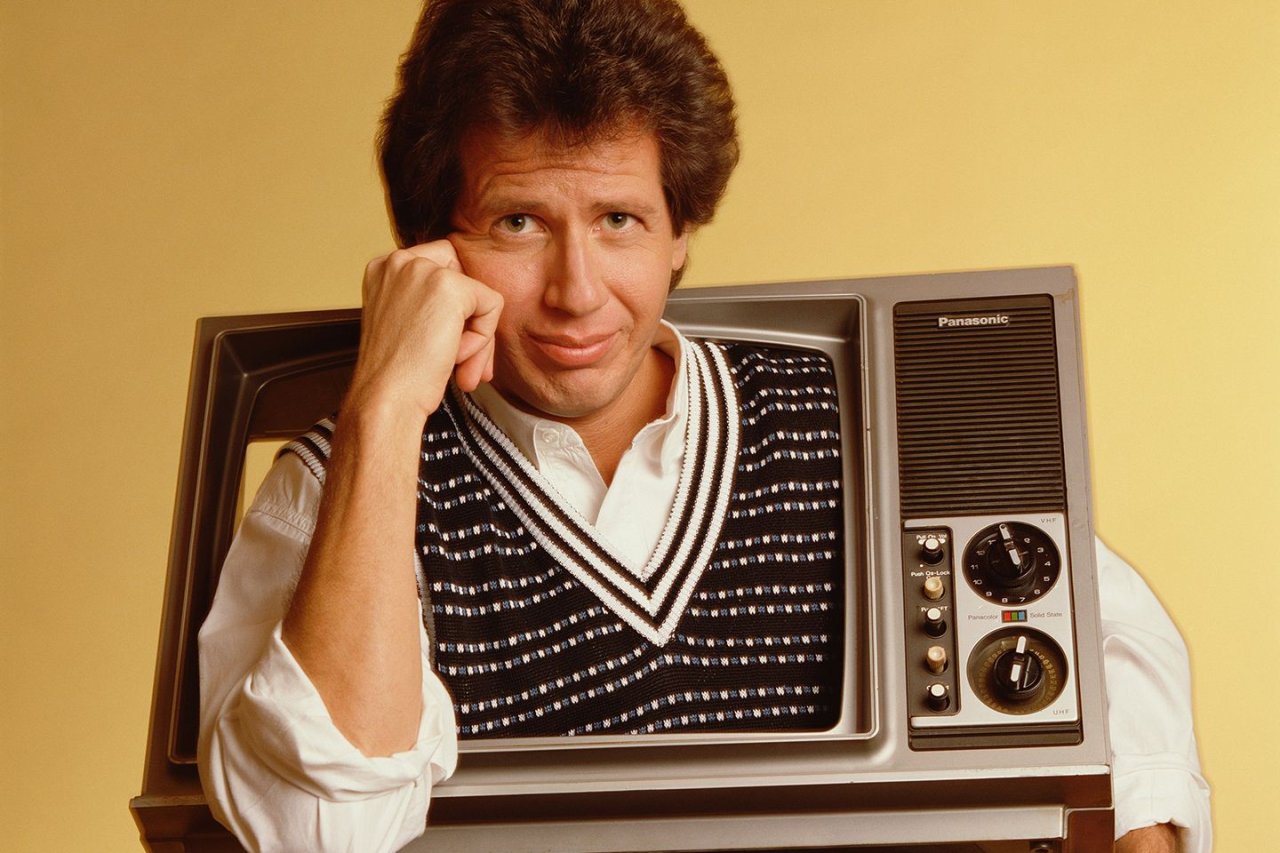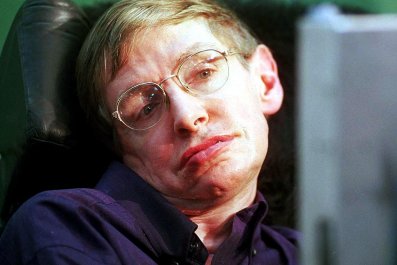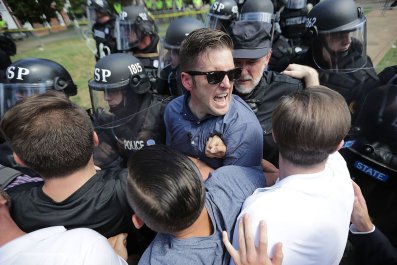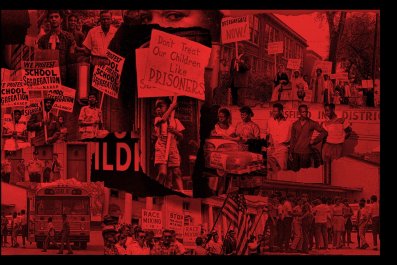Try to imagine television without The Office, Arrested Development, Curb Your Enthusiasm, 30 Rock or Parks and Recreation. If you can't, blame Garry Shandling and the comedian's groundbreaking meta-sitcom, The Larry Sanders Show. Set behind the scenes of a fictional late-night talk show and boasting a stellar cast—including Shandling, Jeffrey Tambor, Rip Torn, Janeane Garofalo and, in a breakthrough role, Sarah Silverman—the show ran for six seasons on HBO, from 1992 to 1998, and fundamentally altered the way TV comedy works. Fly-on-the-wall camera work, acerbic but heartfelt writing and borderline-unlikable characters are de rigueur today, but they were novel when Shandling built Sanders.
If that show was all he ever did, his place in the cultural pantheon would be secure. But that achievement came two years after the even more genre-bending It's Garry Shandling's Show, which aired on Showtime for four seasons. What looked, at first glance, like a traditional mid-'80s sitcom leaned hard into pioneering self-awareness, including the now-familiar tropes of showing the studio audience and directly addressing viewers. And then there's that winking theme song: "This is the theme to Garry's show/The theme to Garry's show/Garry called me up and asked if I would write his theme song."
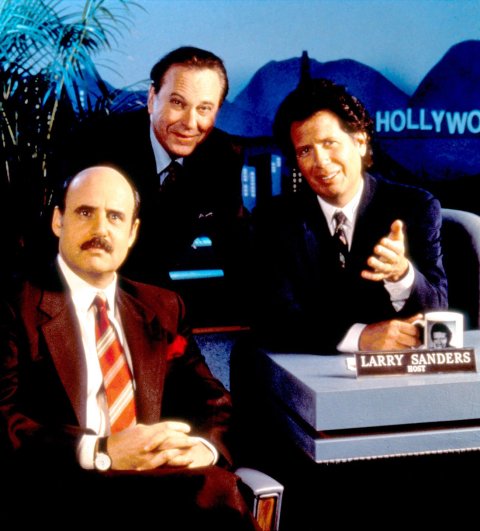
Incredibly, the show found a huge audience, powered in part by Shandling's status as a stand-up comic whose nasal delivery, blown-out bouffant and sardonic observations (routinely centered on his sexual prowess, or lack thereof) earned him frequent appearances on Johnny Carson's Tonight Show and a spot as one of its regular guest hosts. It also turned him into a role model for multiple generations of comedians. "He's like the Replacements," says Judd Apatow. "A rock band that inspired a lot of people to start their own bands."
Apatow included. For 25 years, the comedy guru counted Shandling—who died of a heart attack in 2016 at age 66—as a close friend and mentor. Apatow's first contact was as a high school student, interviewing Shandling for his school's radio station. Years later, when Apatow was doing stand-up in Los Angeles, Shandling asked him to write jokes ahead of hosting the 1991 Grammys. In 1998, Shandling gave Apatow his first job behind the camera, on Larry Sanders, which led to a career directing talent-launching comedies like TV's Freaks and Geeks and the films The 40-Year-Old Virgin and Trainwreck.
His latest project, The Zen Diaries of Garry Shandling, is a magisterial, two-part, four-hour-plus tribute premiering March 26 and 27 on HBO. Framed around the aphorisms, koans and self-criticism that Shandling, a practicing Buddhist, kept in nearly 40 years' worth of notebooks, the film gives the comedian "the Eagles treatment," Apatow says, referring to the three-hour History of the Eagles. "That's my favorite kind of documentary. When someone tells me the Grateful Dead documentary is six hours, I'm the first person cheering."
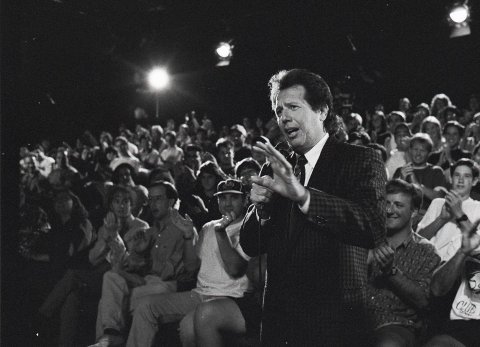
He does right by the format. The Zen Diaries accounts for the full scope of Shandling's life and career— from growing up in Tucson, Arizona, to the memorial service organized after his sudden death—fairly, comprehensively and with verve. It's also revelatory in ways that will likely stop superfans short.
Shandling's older brother, Barry, died of cystic fibrosis in 1960, when Garry was 10. The two were as close as brothers could be, but Garry's parents prevented him from seeing Barry before his death or attending the funeral. "I'm sure it led to all sorts of sensitivities," Apatow says. "That relationship was so important to him and seemed defining, but it was something he didn't share with people. As a result, he always felt mysterious."
The trauma of Barry's death haunts Shandling throughout the film, but it also provides a moment of catharsis. Near the end of the documentary, Apatow shares a letter, addressed to Barry, found in one of Shandling's notebooks. He wrote it later in his life, but no one had read it before Apatow. "I just started crying really hard," he says. "I felt his grief and how he carried it for so long. It made me happy that he had worked through it to the point where he could express himself so clearly about how much he loved his brother and what the loss meant throughout his life."
By confronting Shandling's deep well of private pain, the film provides emotional scaffolding for many of the decisions Shandling made. For example, the man who "reinvented television two times," as Apatow puts it, was almost an electrical engineer. But at 19, after taking 21 units of math and a course in atomic physics, something changed. "One day I walked out of the lab," Shandling says in the documentary, "and I couldn't walk back in. I thought, I can't do this the rest of my life. I sat down and I actually thought, What am I going to do? Well, I like comedy, and I have the ability to learn. What if I took that ability and applied it to something I liked?"
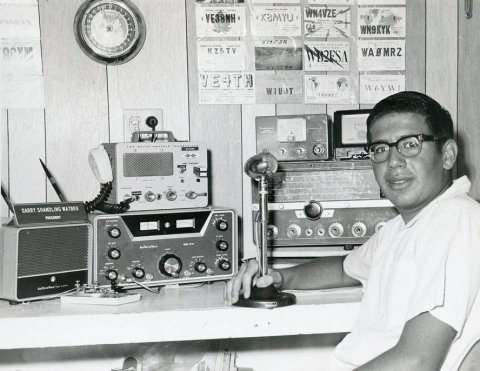
A version of that experience recurs throughout Shandling's career. He wrote three episodes of Sanford and Son, at the time the most popular show on TV, then quit to try stand-up. He ended Shandling's Show after four seasons, despite its wild popularity. He gave up a chance to host numerous late-night talk shows, including possibly The Tonight Show, to make Larry Sanders, which he ended after its sixth season—again, despite its success. That restlessness kept him out of the limelight at times, but it reflected Shandling's lifelong quest "to figure out who I authentically was." His journals became a private forum for that journey. "Maybe your comedy is a natural gift to be given to others with joy to help them through this impossible life," Shandling wrote.
"I always felt an obligation to talk about Garry [later in his life], because he wasn't working as much and I knew that he was the reason why we had all succeeded," Apatow says. "I wanted to remind people of all this man had given to comedy."
The list of comics and actors Shandling mentored, guided, aided, touched or influenced is remarkable, and this is just for starters: besides Apatow, Sacha Baron Cohen, Adam McKay, Conan O'Brien, Kevin Nealon, Jon Favreau, Bob Saget, David Duchovny, Jerry Seinfeld, Chris Rock, Sarah Silverman, Jim Carrey.
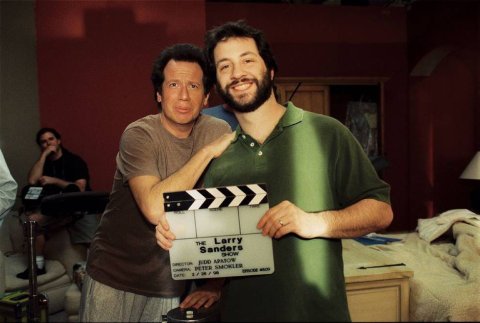
"Having the guy who I considered the greatest comedian in the world say 'You can do it' was immensely inspiring," Cohen says in the film. "This guy just wanted to make people feel better and make people their best. He was like this comic angel. When you were in the shit, he would appear, and he was there to go, 'You've got the talent to make this right.'"
Apatow says Shandling was always open to reading scripts, watching cuts of films and pitching ideas on how to make them better. In the documentary, he shares that Shandling suggested a different ending to The 40-Year-Old Virgin. He argued that the sex Steve Carell's middle-aged virgin has should be better than everyone else's because he's in love. That led, eventually, to the unforgettable "Age of Aquarius" sequence.
"He was so warm and so supportive," Silverman says in the film. "The Garry Effect is, I think, beyond what any of us really imagine."
Shandling's George Bailey–like impact on the world around him drives The Zen Diaries. "As the decades pass, I realized that, on some level, I was like a son to Garry and that he was proud of me and he was trying to help me," Apatow says. "And he was doing that for others as well. He was a brother or father figure to a bunch of people. All of us felt like it was a real blessing in our lives that we had that relationship with him."



